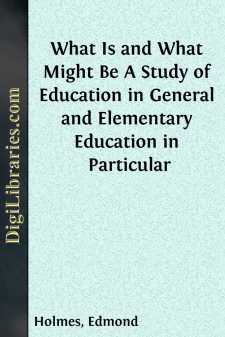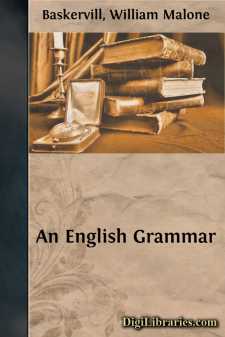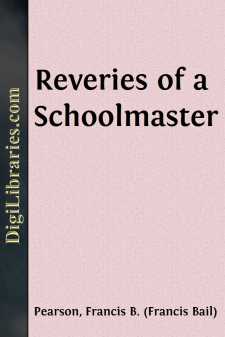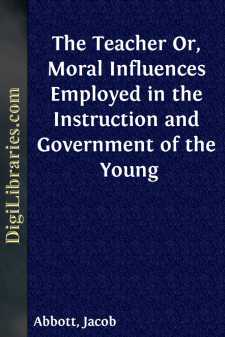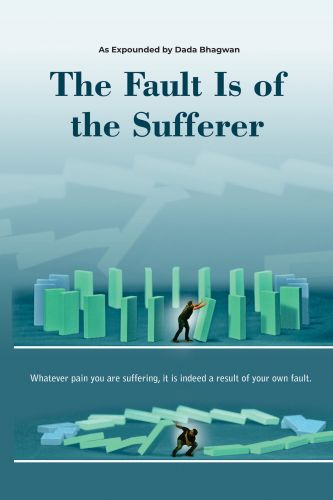Categories
- Antiques & Collectibles 13
- Architecture 36
- Art 48
- Bibles 22
- Biography & Autobiography 813
- Body, Mind & Spirit 142
- Business & Economics 28
- Children's Books 15
- Children's Fiction 12
- Computers 4
- Cooking 94
- Crafts & Hobbies 4
- Drama 346
- Education 46
- Family & Relationships 57
- Fiction 11828
- Games 19
- Gardening 17
- Health & Fitness 34
- History 1377
- House & Home 1
- Humor 147
- Juvenile Fiction 1873
- Juvenile Nonfiction 202
- Language Arts & Disciplines 88
- Law 16
- Literary Collections 686
- Literary Criticism 179
- Mathematics 13
- Medical 41
- Music 40
- Nature 179
- Non-Classifiable 1768
- Performing Arts 7
- Periodicals 1453
- Philosophy 64
- Photography 2
- Poetry 896
- Political Science 203
- Psychology 42
- Reference 154
- Religion 513
- Science 126
- Self-Help 84
- Social Science 81
- Sports & Recreation 34
- Study Aids 3
- Technology & Engineering 59
- Transportation 23
- Travel 463
- True Crime 29
What Is and What Might Be A Study of Education in General and Elementary Education in Particular
by: Edmond Holmes
Description:
Excerpt
PREFACE
My aim, in writing this book, is to show that the externalism of the West, the prevalent tendency to pay undue regard to outward and visible "results" and to neglect what is inward and vital, is the source of most of the defects that vitiate Education in this country, and therefore that the only remedy for those defects is the drastic one of changing our standard of reality and our conception of the meaning and value of life. My reason for making a special study of that branch of education which is known as "Elementary," is that I happen to have a more intimate knowledge of it than of any other branch, the inside of an elementary school being so familiar to me that I can in some degree bring the eye of experience to bear upon the problems that confront its teachers. I do not for a moment imagine that the elementary school teacher is more deeply tainted than his fellows with the virus of "Occidentalism." Nor do I think that the defects of his schools are graver than those of other educational institutions. In my judgment they are less grave because, though perhaps more glaring, they have not had time to become so deeply rooted, and are therefore, one may surmise, less difficult to eradicate. Also there is at least a breath of healthy discontent stirring in the field of elementary education, a breath which sometimes blows the mist away and gives us sudden gleams of sunshine, whereas over the higher levels of the educational world there hangs the heavy stupor of profound self-satisfaction. I am not exaggerating when I say that at this moment there are elementary schools in England in which the life of the children is emancipative and educative to an extent which is unsurpassed, and perhaps unequalled, in any other type or grade of school.
I am careful to say all this because I foresee that, without a "foreword" of explanation, my adverse criticism of what I have called "a familiar type of school" may be construed into an attack on the elementary teachers as a body. I should be very sorry if such a construction were put upon it. No one knows better than I do that the elementary teachers of this country are the victims of a vicious conception of education which has behind it twenty centuries of tradition and prescription, and the malign influence of which was intensified in their case by thirty years or more of Code despotism and "payment by results." Handicapped as they have been by this and other adverse conditions, they have yet produced a noble band of pioneers, to whom I, for one, owe what little I know about the inner meaning of education; and if I take an unduly high standard in judging of their work, the reason is that they themselves, by the brilliance of their isolated achievements, have compelled me to take it. I will therefore ask them to bear with me, while I expose with almost brutal candour the shortcomings of many of their schools. They will understand that all the time I am thinking of education in general even more than of elementary education, and using my knowledge of the latter to illustrate statements and arguments which are really intended to tell against the former....


